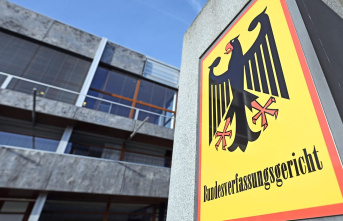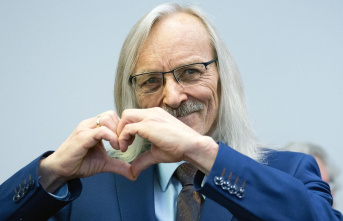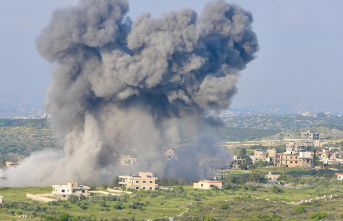It's the worst scenario. But Kiev's Mayor Vitali Klitschko also wants to be prepared for this. To the collapse of the infrastructure in his city, to the complete failure of the power supply, the heat supply, the water supply.
The Russian ruler Vladimir Putin and his military have shown in the past few weeks that they don't care about the survival of the Ukrainian population or international humanitarian law. Attacks on the civil energy supply are actually taboo - and yet there are attacks on power plants and lines again and again. At least a third of Ukraine's energy infrastructure has now been destroyed. The goal is apparently to wear down the Ukrainians, the cold winter is just around the corner. "Our enemies are doing everything to ensure that this city has no heating, no electricity, no water supply - in general: that we all die," Vitali Klitschko accuses.
Before the start of the war, around three million people lived in the Ukrainian metropolis on the banks of the Dnieper. Since then, around 350,000 internally displaced persons have arrived from other parts of the attacked country. Nobody knows exactly how many left the city, fled to the country or to other countries. Klitschko estimates that there are still around three million in Kyiv - and the former world boxing champion knows his city council cannot ensure its survival on its own. On Saturday evening he called on the population on television to stock up or to think about leaving the city for the time being. Maybe somewhere in the country to stay.
Because the supply of the capital is already fragile, the Russian attacks on energy plants are having an effect. The city is trying to stabilize the grid through staggered power cuts. As a result, entire districts are in the dark for hours at a time - the practice should and must be continued.
It is therefore logical that Klitschko and his men and women from the city administration are prepared for the worst case: a blackout. "The civil defense system has to be prepared for different scenarios," says Roman Tkatschuk, who is responsible for the city's security.
As a precaution, around 1000 so-called heating bunkers in schools and other public buildings in Kiev were prepared and equipped with drinking water reserves. They are intended to provide protection from both Russian bombs and the Ukrainian cold. Temperatures of minus ten degrees are not uncommon in Kiev in winter.
But the plans of the city administration go much further. "We know that we could lose our entire power supply system if Russia continues the attacks," quoted security director Tkachuk as saying in the New York Times on Saturday. "Therefore, the government and city administration are currently taking all possible measures to protect our power supply system."
But is that enough? And what if not? The "New York Times" also writes that Klitschko, Tkatschuk and their colleagues are thinking about the unthinkable and planning to evacuate the entire capital. Around three million people would then have to leave Kyiv. An evacuation operation of this magnitude should not have taken place in post-war Europe, it would be a logistical operation of gigantic proportions. Whether and how it would succeed? Uncertain.
Roman Tkatschuk doesn't want to know anything about it. The fact that the city administration is preparing for different scenarios "does not mean that we are preparing for an evacuation," he said on Sunday. But if the electricity in Kyiv were to fail extensively and over a longer period of time, there would be other, more serious problems besides the lack of light. "Without electricity there is no water and no sewage," says Tkatschuk. If that were the case, large, very large, numbers of civilians would set off and flee Kyiv. The city administration must also adapt to this.
No one in the Kiev city administration believes in an end to the Russian bombing of the infrastructure, and why should they? "Putin doesn't need us Ukrainians. He needs the region, needs a Ukraine without us," says Mayor Klitschko. Hopes rest on the state electricity supplier Ukrenergo and the many, many experts who are trying with great difficulty throughout the country to temporarily stabilize the energy supply again. If this does not succeed, Putin's seed could sprout - and the worst scenario could occur. Kyiv could see an exodus, planned or unplanned.
Sources: "New York Times" (paid content), news agencies DPA and AFP












